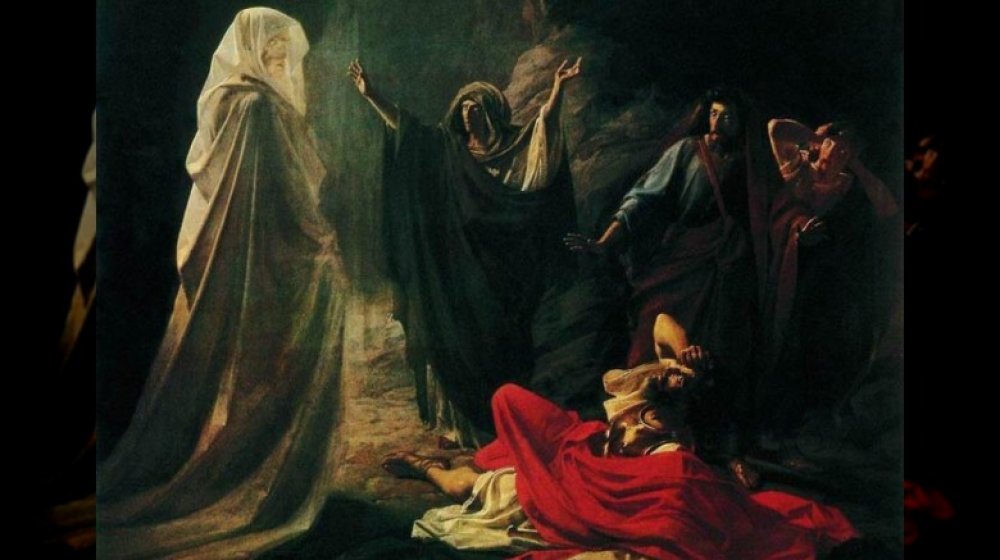What Does The Bible Say About Ghosts?
If you're vaguely familiar with Christianity, you may have heard that God is one-third ghost — Holy Ghost. Obviously, the term "Holy Ghost" — or Holy Spirit, doesn't refer to the sort of spectral entity you associate with, say, Casper or Patrick Swayze. But it contains angels and demons, which at least seem ghost-adjacent. The Bible also describes a variety of fantastical creatures, including dragons and a seven-headed beast, so it would be weird if ghosts got snubbed from the good book. But what does the Bible say about them?
Wholly ghost
Learning Religions asserts that Jesus didn't believe in ghosts. For instance, after he walked on water, his apostles briefly freaked out and declared him a ghost. So what did Jesus do? He told them, "Take courage! It is I. Don't be afraid." To which his followers totally should have said, "I ain't ain't afraid of no ghost." But they were afraid.
Christ's resurrection understandably put the fear of God into his followers, who once again declared him a "ghost" (or "spirit," depending on the translation). And once again Jesus told them to chill: "Why are you troubled, and why do doubts rise in your minds? Look at my hands and my feet. It is I myself! Touch me and see; a ghost does not have flesh and bones, as you see I have." Somewhat undermining Learning Religions' position, the passages don't explicitly state that Jesus didn't believe in ghosts. They only show that he didn't believe that he was a ghost. But for all we know, this was a Sixth Sense situation and Jesus was basically Bruce Willis. It's also worth noting that the Bible mentions what seem to be ghosts elsewhere.
In the Book of Samuel, King Saul falls out of God's favor before going to war. So he calls upon a spirit medium, the witch of Endor, to tell him how the conflict would pan out. The witch raises the ghost of Samuel the prophet, not to be confused with Sam Wheat from Ghost.
The Book of Isaiah references ghosts twice. But there's some debate about what these apparitions actually are. Learning Religions argues that biblical ghosts don't exist in the same way pop culture conceives of them. Rather than roaming the earth, they go to heaven or hell immediately after death.

